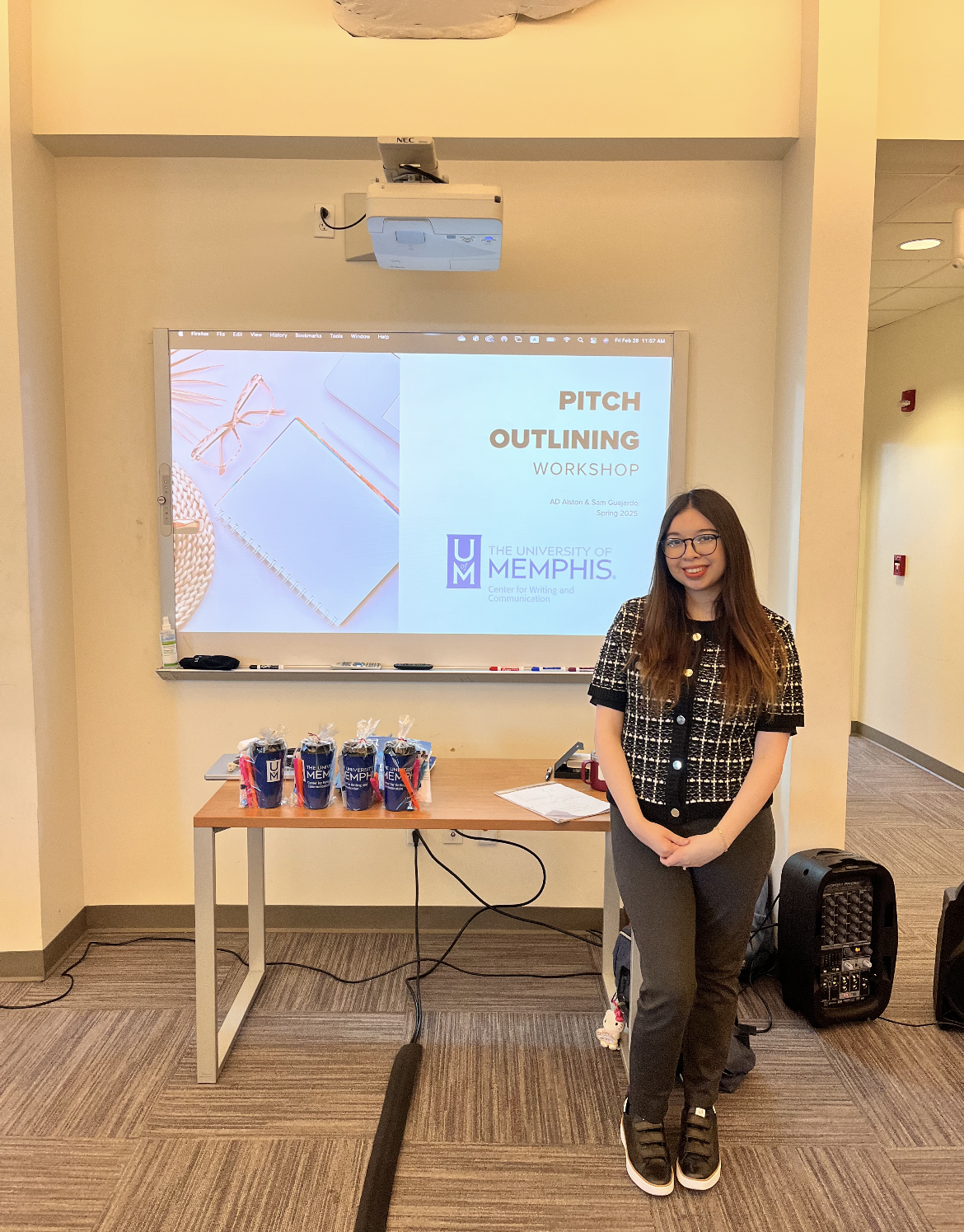Since 2020, I have taught and shadowed courses in public speaking, rhetoric, and interpersonal communication across multiple institutions, shaping an instructional approach that is student-centered, research-driven, and grounded in critical pedagogy. I view communication as a discipline that extends beyond theory, emphasizing its role in shaping public discourse, professional interactions, and civic engagement. My objective as an instructor is to equip students with the ability to analyze, apply, and adapt communication strategies in diverse real-world contexts.
Teaching Experience and Pedagogical Approach
At the University of Memphis, I teach COMM 2381: Oral Communication, where students develop their communication competence by crafting messages for personal and public contexts. Recognizing that many students enter this course with communication apprehension, I create a supportive learning environment that incorporates experiential learning techniques, applied practice, and iterative feedback to help students enhance their communication skills.
Prior to my time at the University of Memphis, I taught COMM 1311: Introduction to Communication at the University of Texas Rio Grande Valley as a stand-alone instructor, helping students develop skills in interpersonal, group, and public communication. I also contributed to COMM 1318: Interpersonal Communication as a guest lecturer, leading discussions on relational dynamics and conflict resolution. These experiences strengthened my ability to create student-centered learning environments where communication theory is explored through application, analysis, and reflection in real-world interactions.
Beyond my teaching responsibilities, I actively contribute to curriculum development and faculty collaboration. At the University of Memphis, I shadowed Dr. de Velasco’s COMM 3001: Rhetoric and Civic Controversy course, studying how rhetorical education fosters civic engagement and critical inquiry. I later guest lectured on stasis theory, designing an activity where students used pragmatic stasis to analyze the Juvenile Crime Abatement Program in Downtown Memphis. This exercise required students to assess how different stakeholders—law enforcement, community members, and youth—could construct rhetorical responses to a contemporary civic issue, emphasizing the real-world implications of argumentation and persuasion.
Student-Centered Innovation and Experiential Learning
Each semester, I develop new activities and assignments that encourage students to apply communication theory to contemporary issues (e.g., Understanding Global Communication Styles and Kairos in Public Speaking). By integrating case studies, guest speakers, and interactive learning opportunities, I challenge students to evaluate communication concepts in practical settings. I regularly invite guest speakers from the Center for Writing and Communication (CWC) and university librarians to facilitate workshops, ensuring that students engage with multiple perspectives and professional communication strategies. Additionally, I am in the process of developing example speech recordings for the introductory, informative, and persuasive speech assignments in Oral Communication, providing students with structured models for effective speech composition and delivery.
Beyond the classroom, I support students through my role at the Center for Writing and Communication (CWC) at the University of Memphis, where I assist students with speech preparation, delivery strategies, and audience adaptation skills. I have also collaborated with the center to develop training module materials for Oral Communication courses, equipping consultants with the resources needed to assist clients. My work at the CWC has expanded my ability to support students across disciplines, reinforcing the importance of oral communication in academic and professional success.
I also prioritize building a sense of community in my courses. At the end of each semester, I host a reflection and engagement potluck, providing students with an opportunity to articulate takeaways from the course and connect with their peers. This session reinforces how communication facilitates interpersonal and professional relationships while encouraging students to recognize their growth in both personal and academic contexts.
Commitment to Professional Development and Teaching Innovation
My commitment to oral communication pedagogy extends beyond my own courses through curriculum development and faculty collaboration. In the Summer of 2024, I developed quizzes for the 15th edition of Understanding Human Communication, ensuring that assessments align with course objectives and student learning outcomes.
Beyond curriculum development, I actively participate in national conversations on oral communication pedagogy. My conference presentations include “Efficiency of Online-Based Flipped Classrooms During the COVID-19 Pandemic,” which examines online adaptations of public speaking instruction, and “Toward a Liberation-Modeled Pedagogy: Reimagining the Oral Communication Classroom,” which argues for a student-centered, critical approach to oral communication education. I have also attended GIFTS (Great Ideas for Teaching Students) sessions at the National Communication Association and Western States Communication Association, integrating innovative teaching strategies into my courses to enhance student learning and engagement.
Conclusion
Through my teaching, curriculum development, and faculty collaboration, I strive to make oral communication instruction engaging and applicable. My goal is to ensure that students develop effective public speaking skills while also gaining a critical awareness of how communication shapes their personal, professional, and civic lives.
Samantha Guajardo, M.A.
PhD Student & COMM 2381 Instructor
College of Communication and Fine Arts
She/Her
